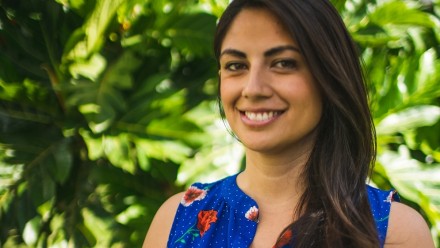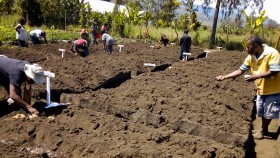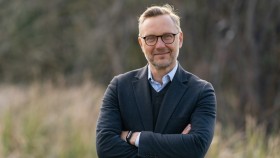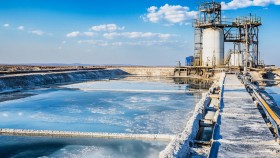How can Indigenous knowledge help to build resiliency in the face of climate change?
Vehia Wheeler should have a bright future ahead of her. But as a young person living with the increasing challenges of climate change, she’s acutely aware that a ‘bright’ future is by no means guaranteed.
“I go through periods of eco-grief. I see our coral dying right in front of my eyes – that didn’t happen when I was growing up,” she said.
While this might be overwhelming for a lot of people, Vehia has used her personal experiences to drive her work, and to instigate positive change for her people, her land, and her culture.
“I feel very much that we need to do something, and that is what ultimately makes me happy and fulfilled. I can’t imagine myself putting in so much effort to anything else,” she said.
Born and raised in Hawaii, Vehia spent a lot of time travelling to her mother’s home of Moorea in Tahiti when she was young. After completing her graduate studies at the University of Hawaii, Vehia decided to relocate to Tahiti. She saw this as an opportunity to learn more about her own culture – the language, and particularly how the people and society operates, on the ground.
“Being Tahitian and a Pacific Islander is a large part of my identity,” she said. “I’m a person of this ocean, and am connected to the world, ocean and people around me.”
This year, Vehia commenced her PhD at the Australian National University, researching ancestral land views and decolonial futures in Mā’ohi Nui (French Polynesia). She has also been named as the recipient of the ANU Game Change Scholarship, which provides game-changing support to the emerging generation of PhD scholars working in the area of climate change.
In particular, Vehia’s research is concerned with examining ancestral resiliency in the face of environmental fluctuations. She is looking at how Indigenous knowledges and methodologies from Mā’ohi Nui could help build resilience in local communities in the region who are facing the very real and immediate threats of climate change.
“Indigenous methods prioritise the local populations and their desires of the future. They look at how local people are working, and look to co-design solutions that bring that future to life,” she said.
During her graduate studies at the University of Hawaii, Vehia became interested in climate change issues, and in a particular theme that reoccurred throughout her studies - the future of the Pacific. When thinking about this in relation to climate change, Vehia started to consider how her ancestors had been dealing with changes in their environment over thousands of years.
“That’s what prompted me to learn more about my own cultural resiliency; methods of resiliency and thriving throughout change,” she said.
This interest led Vehia to examine land issues, and how her community manages and lives on the land when they’re facing floods, hurricanes, and tsunamis.
“They’re all things I grew up with in Hawaii. I’ve lived through floods, and hurricanes and earthquakes. Having that as my own personal experience is important, because I understand how it can impact people from a personal point of view,” she said.
“Indigenous knowledge and methodologies prioritise self-reflection - your position and how you relate to the subject and people that you’re studying, and that you’re in relationship with. I chose to work with Tahiti because I’m Tahitian and I have family here, and I felt like it was appropriate for me as a Tahitian person, and it’s also a part of my future.”
Vehia’s research also includes a strong focus on engaging with communities in a long-term capacity, and she has a strong sense of how her work can benefit her community.
“I would like to contribute to educational change, how we speak to the local education systems and what they’re teaching locally. I’d also like to create an aspiration for younger Tahitian people to become climate scientists and caretakers of the land.”
Vehia sees the Game Change Scholarship as an opportunity to promote her research through the well-established networks that ANU offers.
“Sometimes, it’s not easy for Indigenous research to be taken seriously,” she said. “My work at and with ANU could potentially open a lot of doors and change a lot of relationships and perspectives,” she concluded.
To find out more about the Game Change Scholarship, including how to apply, click here.
If you are interested in contributing to the Game Change Fund, or other philanthropic opportunities, please contact College of Science Development Manager, Tim Langford, at tim.langford@anu.edu.au.
To find out more about Vehia’s work, please email her directly.











